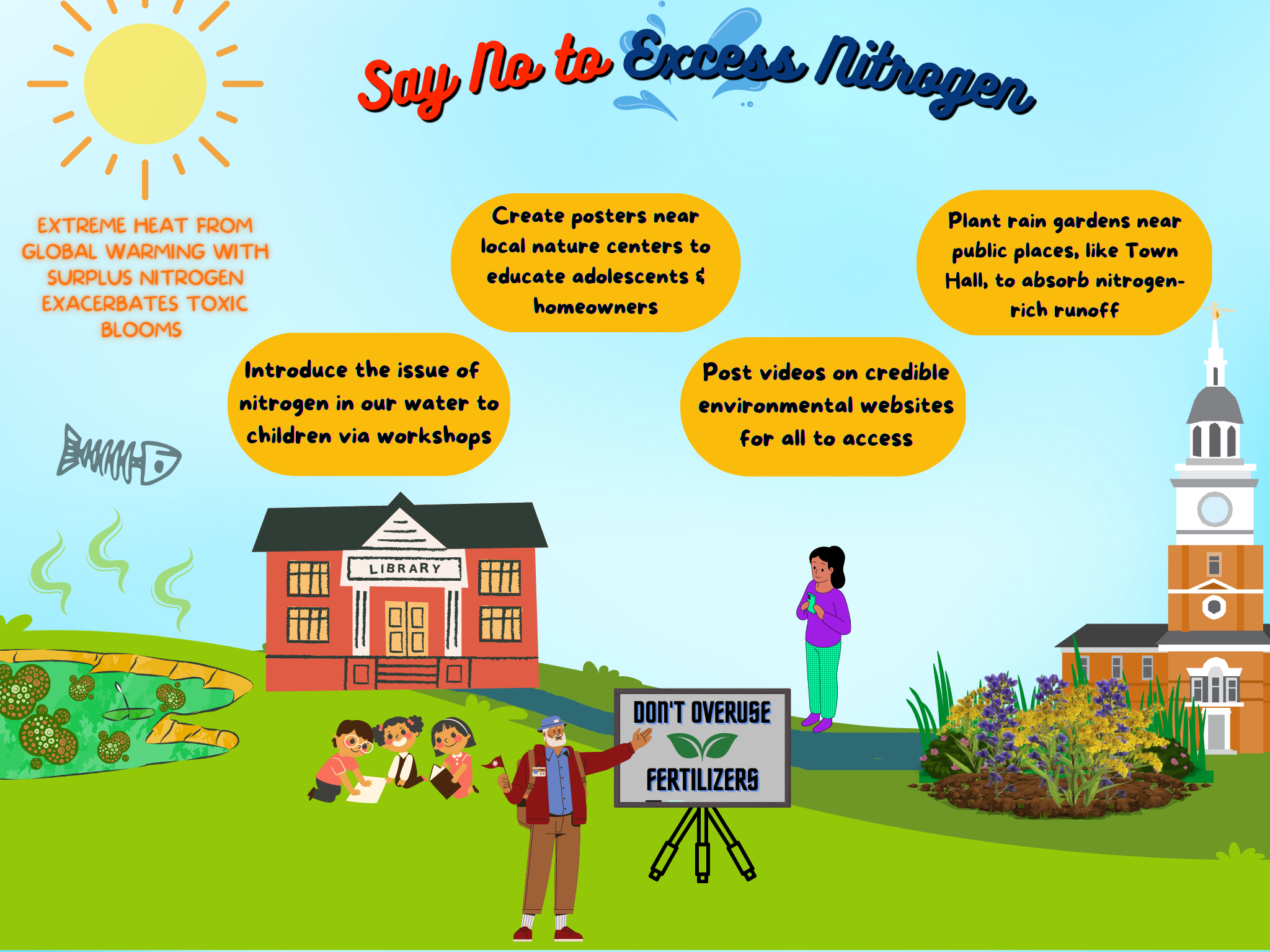Nitrogen in commercial fertilizers is the leading cause of water quality degradation in Long Island, and is an expensive process to remove. Fertilizers from our lawns contaminate our communities’ three aquifers via runoff, polluting our sole source of freshwater. Additionally, fertilizer runoff coupled with extreme heat causes algal blooms in nearby ponds and estuaries, harming local wildlife. These factors have influenced ecosystems such as Shinnecock Bay, which shut down fisheries due to intense algal blooms. The key to mitigation is educating the public about environmentally friendly fertilizer use by hosting workshops and sharing presentations at the local library and schools. Putting up posters at local environmental centers such as the Hempstead Plains Education Center can bring awareness to adolescents and homeowners who attend, and publishing a video on a credible website such as the Nassau County Soil and Water Conservation District can disseminate these topics even further. Taking preventative measures such as planting rain gardens in our backyards can reduce nitrogen input, using irrigation and native plants to filter nitrogen from runoff and promoting healthy growth without excessive fertilizers. Organizing a rain garden planting event near the Town Hall can bring people together and build a more climate-resilient community.
Contact us
Thank you for your interest in contacting Future Engineers. We look forward to connecting with you!
General Inquiries
support@futureengineers.orgSponsorship Inquiries
sponsor@futureengineers.org
